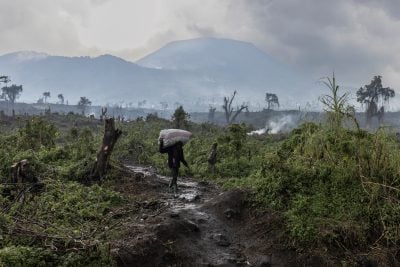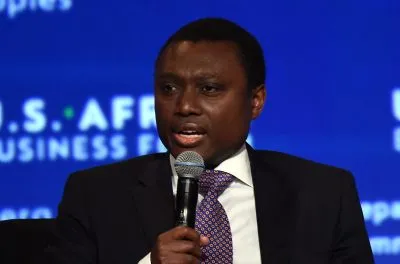Private equity has dominated Africa’s investment landscape for decades, popularised by huge venture capital (VC) deals in the continent’s ever-expanding tech sector. But alongside private equity, private debt is starting to emerge as an alternative asset class which has the potential for enormous growth on the continent.
Private debt – otherwise known as private credit or private capital – is a form of non-bank lending where funds provide loans to businesses with set repayment terms and interest charged. It is similar to the types of loans disbursed by banks, only that the capital is provided by institutional and commercial investors.
The African Private Equity and Venture Capital Association (AVCA) found last year that the total value of private capital deals reached a record high of $7.4bn in 2021, representing a 118% increase compared to $3.4bn in 2020. The record amount was almost double the $4bn that was invested on an annual average basis in Africa between 2016 and 2020.
The surge in private debt in Africa mirrors the broader development of the asset class across the world, says Jo Fry, Investment Director and Head of Intermediated Credit at British International Investment (BII), the UK’s development finance organisation.
“If you look at private credit in more developed markets it is huge, representing more than $1.2trn,” she said. “In Africa there is a big need in the market. It’s a space that private credit funds can easily fill and that is why it is growing”.
Filling the gaps
Africa’s funding pipeline is filled with plenty of gaps as small to large businesses across the continent face major challenges in accessing finance. It is notoriously difficult for companies to access finance from domestic lenders that are majorly risk averse and prefer to invest in safer assets like government bonds.
Fry says that private debt can step in to help finance businesses that banks have not yet worked out how to lend to. In this respect, private debt was able to make serious gains during Covid-19 when most banks shut down lending in order to minimise losses and weather the storm.
“For banks, some markets retrenched after Covid-19, they had a lot of regulatory constraints,” she tells African Business.
“They also sometimes look for a lot of collateral and have limited access to dollars. On the flipside to that, private credit funds can offer longer tenors and be more flexible. Also if banks are located in one country and the business is expanding into neighbouring countries then it’s outside the remit of domestic banks”.
The investment director says that 40% of the BII’s portfolio is in the debt space, through a mix of direct lending to corporates as well as intermediaries and private credit funds that lend a mix of debt and equity across various markets.
In 2021, BII invested $30m into Blue Peak Private Capital – an emerging debt fund dedicated to supporting SMEs across Africa. The company’s inaugural $200m fund targets high-impact companies that are looking for between $10m to $30m in funding.
It has so far invested in four companies ranging from real estate to pharmaceuticals.
“80% of the economy in Africa is SMEs,” says Walid Cherif, founder and managing director of Blue Peak Private Capital.
“Unfortunately, they don’t get adequate financing for their needs. A big portion of the economy is underserved. For us, it’s a big opportunity to come up with the funding solutions to support SMEs in different markets”.
Why debt?
Private debt is seen as an attractive alternative to equity because founders and business-owners typically do not want to “dilute their share of ownership” by bringing in a new partner in exchange for finance, Cherif says.
Many of the businesses in Africa are also family-owned businesses and this creates further barriers towards the sale of equity, he adds. Private debt, in this case, may be a better choice, but with private debt investment instruments still relatively unknown in Africa, it is harder to roll them out at scale.
“We’ve seen that as it’s a new asset class we need to do a lot of heavy lifting in terms of educating the markets,” says Cherif. “Educating the various financial advisors who work with these SMEs as well as the CEOs and CFOs”.
Interest in debt funding will usually peak after an effective investment has been made – creating a buzz in the country and often throughout the wider region, the managing director says.
Yet despite the lack of knowledge surrounding debt funding, investors like Blue Peak Private Capital has seen huge demand for its services, Cherif says.
“We started the fund less than two years ago and we have already made half of the investments. We are about to make the fifth investment in early 2023. We see more than 150 opportunities every year, we are very active in the market and we see a lot of opportunities. We see deal flow everywhere. But we tend to be very selective”.
Raising funds
Another problem debt funds face is raising money from investors, especially in today’s tough economic climate.
“The biggest challenge in our business is raising capital from commercial investors,” he says. “A lot of European and US investors still perceive the risk of Africa as higher than elsewhere. We will demonstrate that that is not the case”.
He says that Blue Peak Private Capital has so far mostly relied on development finance institutions (DFIs) for capital, but budgets are limited.
“If we can change that and attract private investors it will create a huge opportunity. We are looking at international investors, local investors as well as pension funds which have a lot of capital. We try to educate local investors to allocate a bit more of their money to alternative investments for institutions that support local businesses in Africa”.
The way to attract more capital is by proving that private debt investments can create good returns for investors and value for businesses, he adds.
“Private debt is a new asset class and we are still at the beginning of the journey. In the future, I’m sure we will be able to convince commercial investors to put money in Africa”.
Want to continue reading? Subscribe today.
You've read all your free articles for this month! Subscribe now to enjoy full access to our content.
Digital Monthly
£8.00 / month
Receive full unlimited access to our articles, opinions, podcasts and more.
Digital Yearly
£70.00 / year
Our best value offer - save £26 and gain access to all of our digital content for an entire year!


 Sign in with Google
Sign in with Google 





